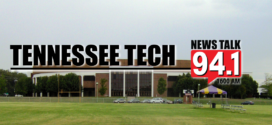As school systems across the state have sought to work through the COVID-19 shutdown, a Cookeville leader has been part of many tough decisions.
Lillian Hartgrove serves as the chair of the Tennessee Board of Education. She came to the board in 2014. The board includes 11 members, appointed by the governor, who focus on decisions concerning Tennessee children.
During the COVID-19 shutdown of schools, Hartgrove and the board have assisted in charting a course for the state and defining the rules of operation.
“The last several months have really been very intense, to say the least,” Hartgrove said. “It’s just really dealing with something that no one has ever dealt with in at least in our lifetime. So many factors that we’ve had to all think about. And the school districts have been working incredibly hard to work through those closures. And what did that mean for instructional time and making sure that students, students could still end the school year and be better prepared for that next grade level.”
With schools dismissed for summer break, the next grade level is where the attention has turned for state education officials. Hartgrove said health concerns aside, leadership must decide how to structure the mechanics of returning to school and making up the spring’s learning.
“There is a vast amount of work still being undertaken behind the scenes trying to work through that and determine how can we test, how can we assess students to see where they are to ensure that we can take definitive action to move them along faster,” Hartgrove said. “There are different ideas and concepts that are being considered, but it’s not like you can just wave a wand today and say we know that that absolutely will work exceedingly well.”
Educators are considering ideas from extended days to extended summer work to even year-round schools. Innovative ideas like looping, Hartgrove said, are being examined. With looping, a teacher goes with a student group beyond the typical end of grade.
“So if I was teaching third grade last year, I will follow all my third grade students and teach them in fourth grade because I know them,” Hartgrove said. “I can bring them along faster than someone else, perhaps. And I know where they were when we left off. And I know what I need to do to bring them up faster to be at the fourth grade level. That’s an idea that’s seriously being considered.”
The summer preparations will also include work on what another closing might look like should COVID-19 flare up again in the winter. Hartgrove said educators learned a lot during the spring shutdown, but much more work will be needed to improve off-site education.
“We haven’t arrived yet because we don’t have access for every child to be schooled from home,” Hartgrove said. “Even those schools, as I’ve said, they have put together packets of materials to provide to children. But because they cannot interact with those children the way they need to. They don’t really know if they’re, in fact, reading those materials, doing those assignments.”
The Board of Education works with the Department of Education, but the responsibilities of each are different. Hartgrove said the board develops rules and policies based on legislation passed by the General Assembly. During this COVID-19 shutdown, that has included rules about everything from school attendance to holding students, teachers, and systems harmless for grades or test results.
As Hartgrove visits with school leaders and system administrators across the state, she said many systems want more clear rules and instructions from the state. That means, Hartgrove said, fewer suggestions.
“Many of them would like to see a unified statewide solution,” Hartgrove said. “There are certain things that they really want guidance from the state about.”
She said the differing effects of COVID-19 makes that more difficult, because areas like Memphis and Nashville are dealing with deeper outbreaks than more rural communities like those across the Upper Cumberland.
 News Talk 94.1/AM 1600 Where The Upper Cumberland Talks
News Talk 94.1/AM 1600 Where The Upper Cumberland Talks







